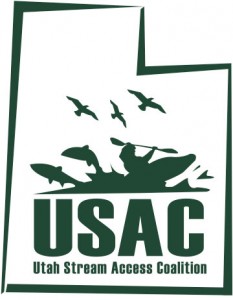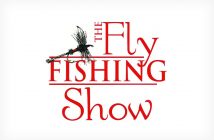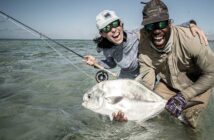H.B. 208 Inches Closer to Enactment
The 2023 Legislative Session ends on Friday, March 3rd. The Coalition has been actively opposing H.B. 208, “Criminal Trespass Amendments,” which was introduced by Representative Scott Chew, R-District 68, and sponsored in the Senate by Senator Scott Sandall, R-District 1.
H.B. 208 was introduced to the House on January 17, 2023 and sped through the House to the Senate Natural Resources, Agriculture, and Environment Committee who provided a favorable recommendation on February 21, 2023. Throughout this process, the Coalition has actively met and communicated its opposition to key legislators as H.B. 208 moved through the legislative process. On February 24th, the bill was sent to the House Concurrence Calendar, which provides the House with the opportunity to accept or reject H.B. 208, as amended. If the majority of the House concurs with the Senate amendments, the House will open a vote for final passage of this legislation. Contacting your representative and voicing your opposition to H.B. 208 is critical.
So why does the Coalition oppose H.B. 208?
In short, this bill capitalizes on lack of clarity of which rivers in Utah are “navigable” and “non-navigable” and authorizes law enforcement to issue a class B misdemeanor to individuals who touch the streambeds and banks of non-navigable waterways that flow through private land. While the Coalition has always supported measures to protect private property rights, i.e., enforcement of existing trespass laws that have been codified in the Public Waters Access Act, among others, this bill is sure to cause further confusion from both an access and enforcement perspective because the navigability status of many of our rivers and streams has yet to be determined. And while the Coalition’s navigability lawsuit on the upper Weber River was successful in restoring access from Holiday Park to Echo Reservoir, the navigability status of our other major waterways remains unsettled. H.B. 208 exploits this gray area.
WHAT YOU CAN DO TO OPPOSE H.B. 208
At this point in the legislative process, members of the Coalition may not be able to directly influence the fate of H.B. 208, but calls, emails and in-person meetings are still helpful to hold your representative accountable. Requesting an in-person meeting is easy to do and the most effective way to make your voice heard. If you are unable to make it up to the Capitol, calling or texting your Representative is the best opportunity since emails tend to be glossed over.
A summary of key points to address with your representative include:
- The ability to enforce H.B. 208 is dependent on a river or stream being “non-navigable” and flowing through privately owned land. Utah’s legislature and state agencies have been unable (or unwilling) to define which rivers are “navigable” and therefore open to public use, or “non-navigable,” and subject to the penalties proposed. Yet this bill requires that critical distinction to be made without a proper review of historical use supporting navigability. This could result in several of our major, and arguably navigable, rivers being closed to public use.
- Current trespass laws, in conjunction with the Public Waters Access Act, already prohibit the touching of privately owned stream beds without the permission of the owner of those beds. See Utah Code Sections 73-29-101 et seq. (Public Waters Access Act), 76-6-206 (Criminal trespass – general), 76-6-206.3 (Criminal trespass on agricultural land or range land) and 23-20-14 (Criminal trespass while hunting or fishing). The penalties in these existing provisions are the same as those in H.B. 208, which makes this proposed legislation superfluous and redundant.
- H.B. 208 fails to establish any repercussions for landowners misrepresenting a navigable stream or river as a non-navigable stream or river, or harassing, or seeking the citation and/or removal of a member of the public exercising their legal right to use the beds and banks (up to the Ordinary High Water Mark) of navigable streams or rivers of the State for lawful recreational purposes that utilize the water. Simply put, it’s not up to landowners or the Legislature to decide which rivers and streams are non-navigable, it depends upon their historical use by the public.
- The Utah Supreme Court is currently deciding the Coalition’s appeal on the Provo Case, which addresses the threshold question of whether the public has a constitutional right to touch privately-owned stream beds while engaged in recreational activities that utilize the publicly-owned waters of the State. The Court heard oral arguments in the matter of Utah Stream Access Coalition v. VR Acquisitions, LLC (Victory Ranch) on January 9, 2023, and the matter is presently under advisement. Enactment of H.B. 208 in advance of the Supreme Court’s ruling in this case is bound to create confusion for law enforcement and the public alike.
If you have the ability to go to the Capitol, look for a “QR Code” taped to the wall near the entrance of the House Chambers which will provide a link to legislator’s contact information. Telephone and text links are provided below the Representative’s picture which will provide you the ability to contact their intern and request a face-to-face meeting. In our experience, a call to the listed number is typically answered immediately. Importantly, you are free to speak with any Representative; that person does not have to be the Representative for your district, but YOUR OWN Representative is supposed to represent YOUR interests.
If you have any questions on making your voice heard in the legislative process, please do not hesitate to reach out to us. Let’s make OUR voices heard!
Thank you, as always, for your continued support.
Board of Directors
Utah Stream Access Coalition

 FROM
FROM 

